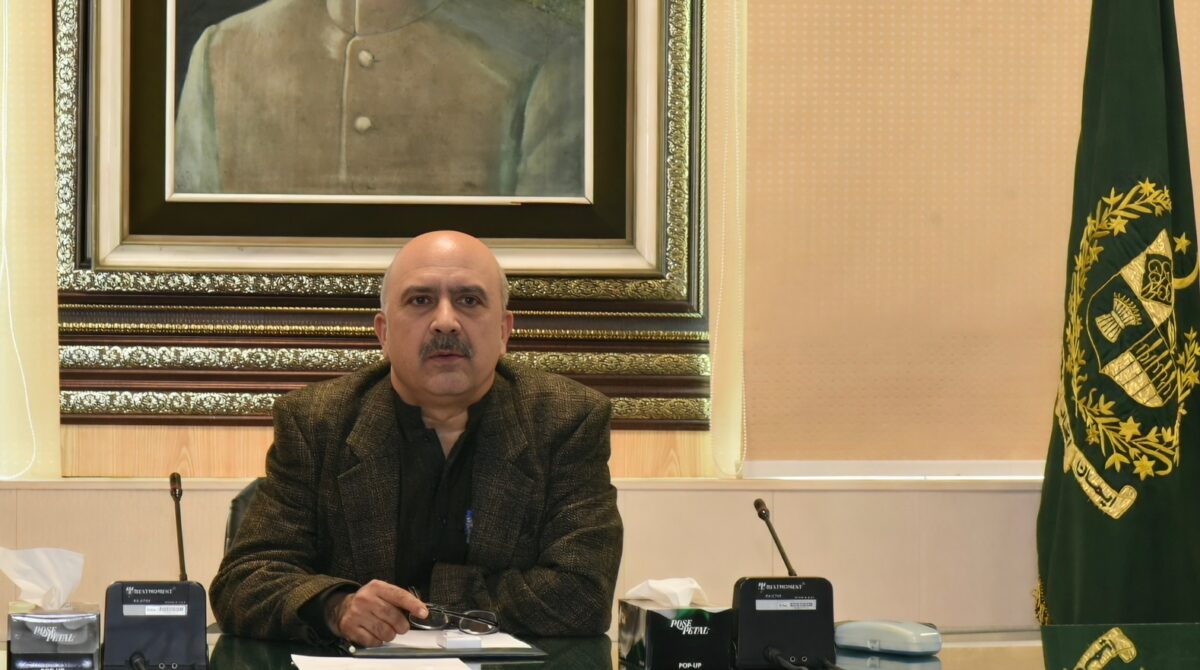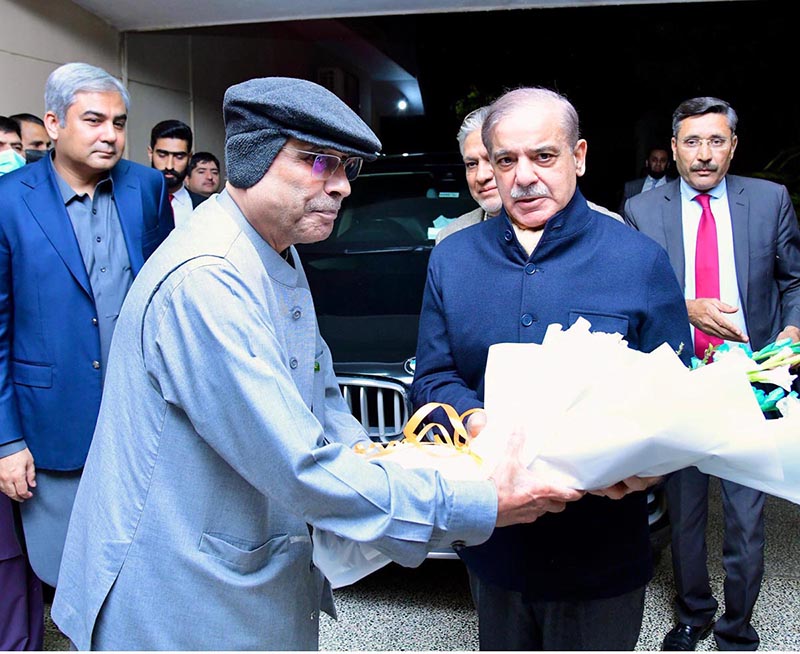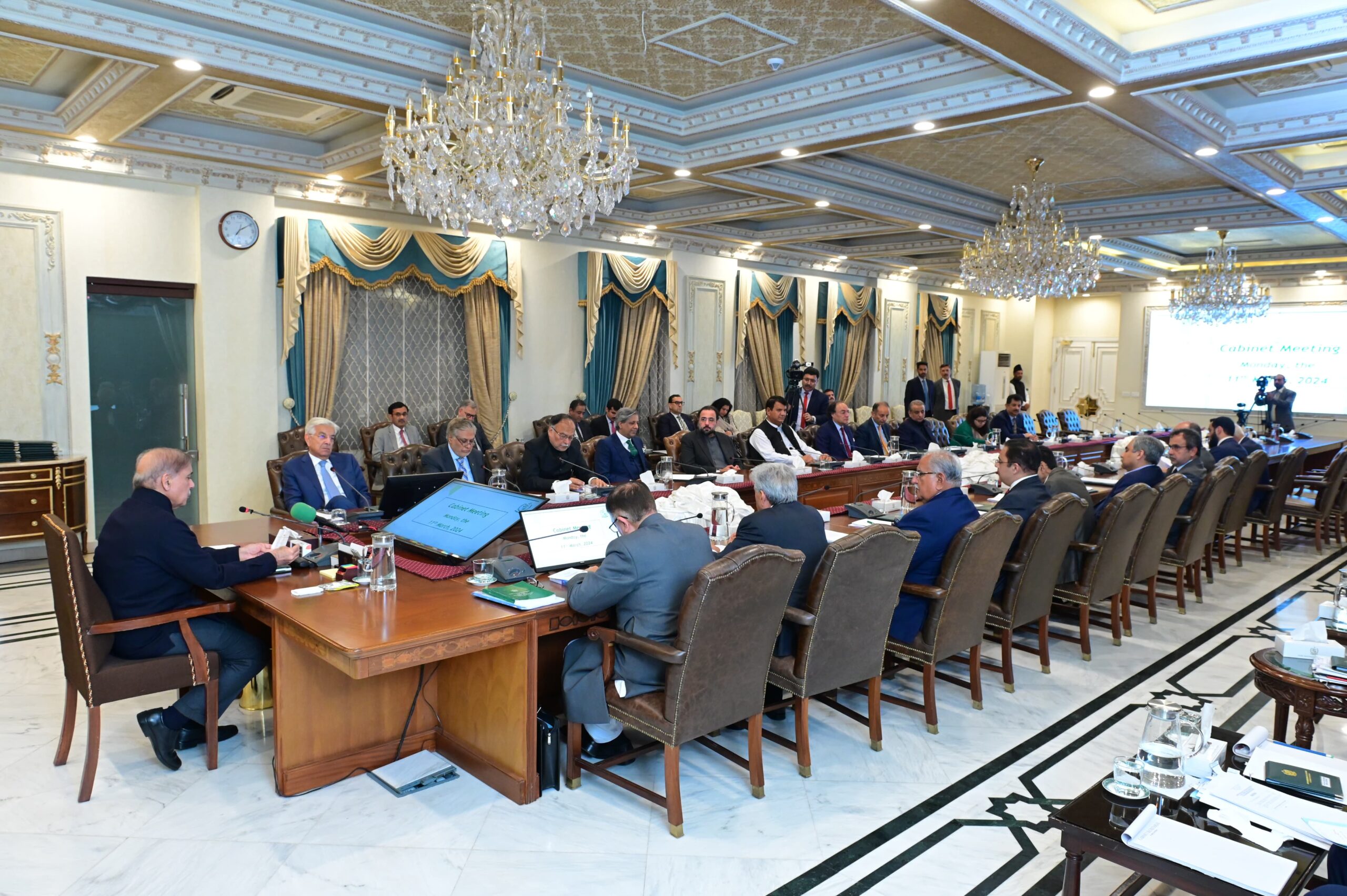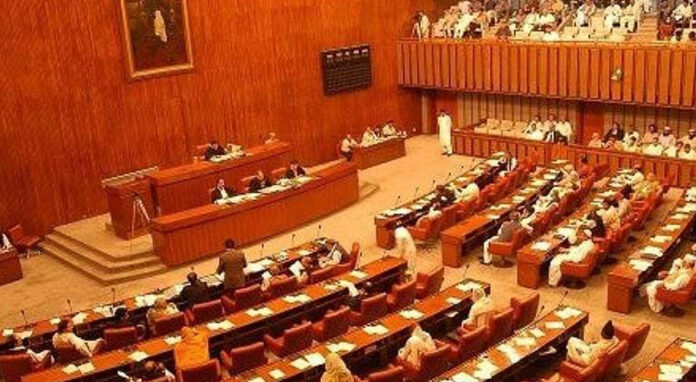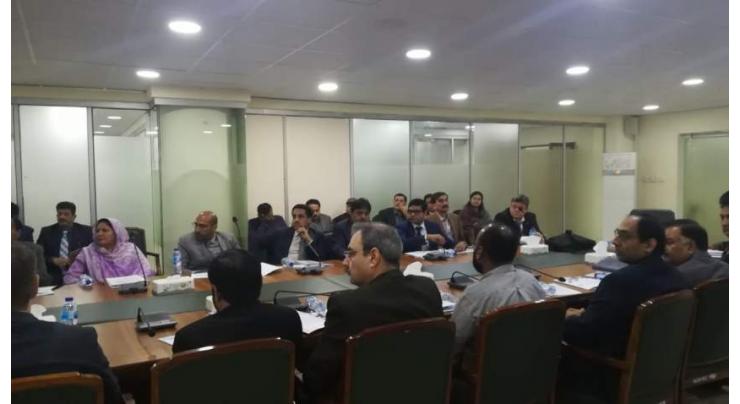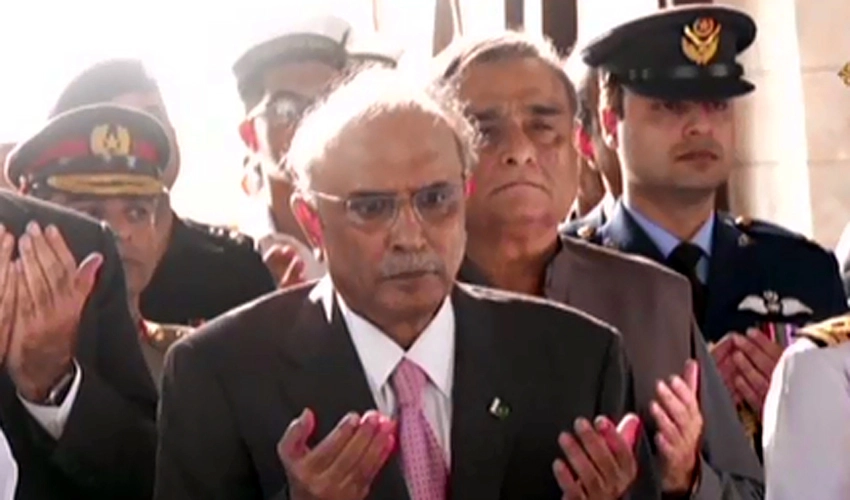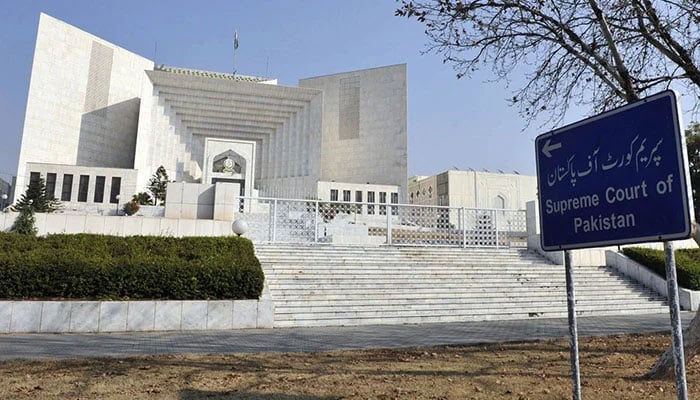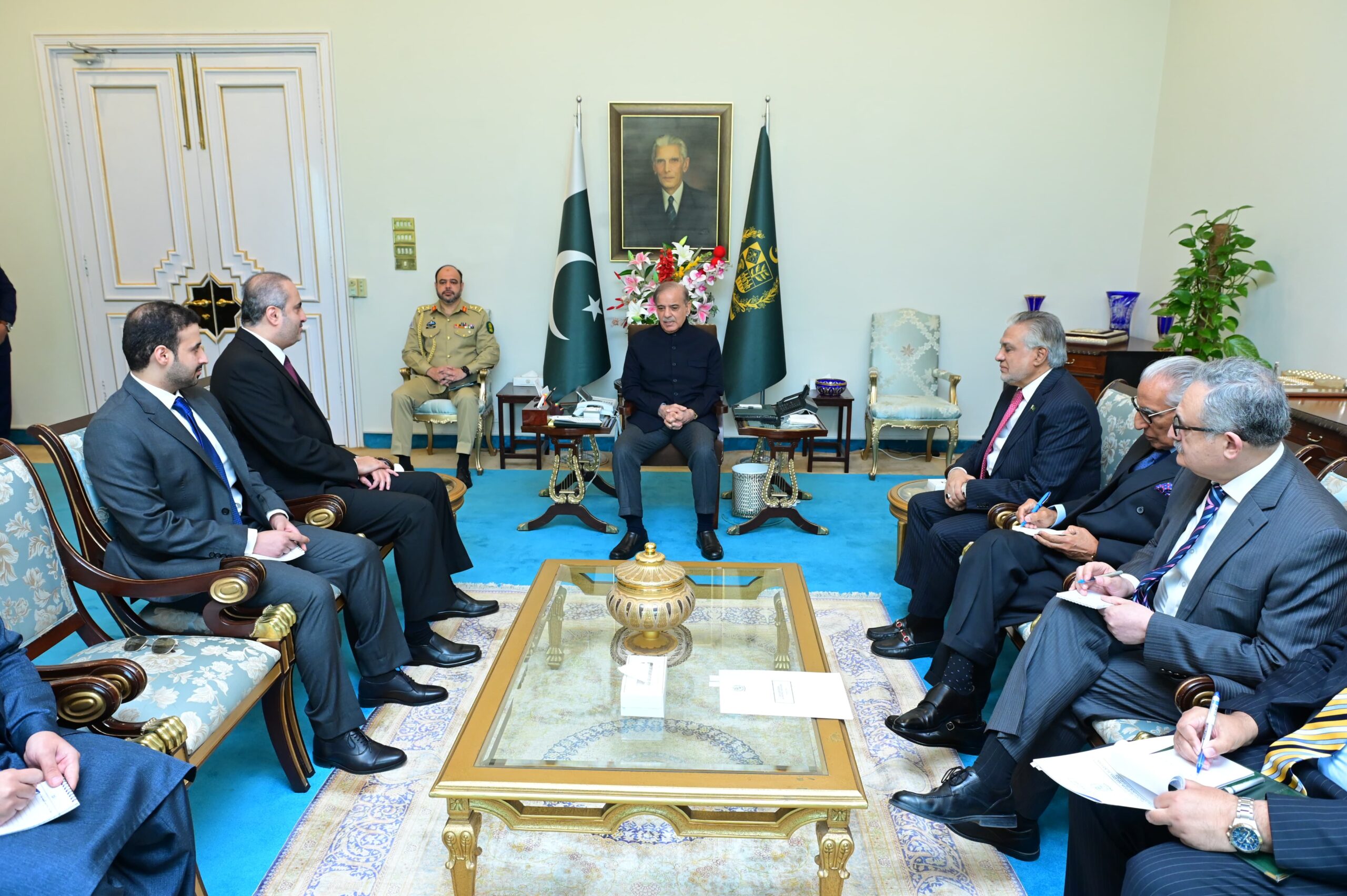ISLAMABAD, June 08 (APP): Pakistan and China on Saturday reiterated that they would continue to view the relationship between the two countries from a strategic height and a long-term perspective, take effective measures to safeguard the common interests of Pakistan and China and promote socio-economic development and well-being of the two peoples.
The two sides agreed to work together to jointly uphold regional peace, stability, development and prosperity, and accelerate the building of an even closer ‘Pakistan-China Community with a Shared Future in the New Era’, said a joint statement between the Islamic Republic of Pakistan and the People’s Republic of China issued at the conclusion of Prime Minister Muhammad Shehbaz Sharif’s five-day visit to China.
The two sides had candid and in-depth exchanges of views on the entire spectrum of bilateral relations as well as regional situation and international landscape and reached extensive consensus on further strengthening the Pakistan-China All-Weather Strategic Cooperative Partnership and promoting practical cooperation in various areas, and on international and regional issues of mutual interest, a press statement of the Foreign Office said.
The two sides agreed that Pakistan and China are All-Weather Strategic Cooperative Partners and ironclad friends, and the two countries have always understood, trusted and supported each other.
Since the establishment of diplomatic ties 73 years ago, Pakistan-China relations have stood the test of changing international environment and have been as solid as a rock, and as unshakable as a mountain.
The Chinese side reiterated that the Pakistan-China relationship is a priority in its foreign relations. The Pakistani side underscored that the Pakistan-China relationship is the cornerstone of its foreign policy.
The two sides enjoy unbreakable strategic mutual trust, fruitful practical cooperation in various fields, and maintain close coordination on international and regional affairs.
The Chinese side congratulated Pakistan on holding successful general elections, and expressed best wishes for the new Pakistani government in leading the Pakistani people in their endeavors to achieve socio-economic development, prosperity, unity, stability and security.
The two sides will explore avenues to deepen experience-sharing in state governance and synergize their development strategies.
The Pakistani side spoke highly of China’s major development achievements in the New Era, and expressed good wishes to the Chinese people that under the strong leadership of the Communist Party of China, China will realize the second centenary goal of building China into a great modern socialist country in every dimension.
The Pakistani side spoke highly of and supports China’s all-round efforts to advance the building of a strong country and achieve national rejuvenation through a Chinese path to modernization, believes that the Chinese path to modernization provides a new option and practical solution for developing countries to achieve independent development.
The two sides reaffirmed their unyielding support for each other on issues concerning their respective core interests. Both sides stressed that the authority of the UN General Assembly Resolution 2758 brooks no dispute or challenge. Pakistan reaffirmed its firm commitment to the one-China principle, and reiterated that Taiwan is an inalienable part of the People’s Republic of China’s territory, and that Pakistan firmly supports the Chinese government’s every effort to achieve national reunification and opposes any form of “Taiwan independence.” Pakistan firmly supports China on issues concerning Xinjiang, Xizang, Hong Kong and the South China Sea.
The Chinese side reiterated its steadfast support for Pakistan in safeguarding its sovereignty, national independence and territorial integrity, in pursuing a development path suited to its national conditions and in its efforts to safeguard national security, stability, development and prosperity, in firmly combating terrorism, and in playing a bigger role in regional and international affairs.
The two sides reiterated their commitment to combating terrorism in all its forms and manifestations with a “zero tolerance” attitude, and agreed to further strengthen cooperation in counter-terrorism and security through a comprehensive approach.
Calling on the international community to strengthen counter-terrorism cooperation, the two sides expressed their firm opposition to double standards on counter-terrorism, and opposed the politicization and instrumentalization of counter-terrorism.
The two sides stood ready to work with the international community to strengthen multilateral counter-terrorism cooperation within multilateral frameworks such as the United Nations.
The two sides recognized that the China-Pakistan Economic Corridor (CPEC) has been a pioneering project of the Belt and Road Initiative.
Since the launch of CPEC, the two sides have adhered to the principle of “planning together, building together, and benefiting together,” and promoted the construction of CPEC to achieve fruitful results, which has changed the development landscape of Pakistan, benefited its people’s well-being, and promoted the integrated development of Pakistan and China.
Both sides underscored the importance of maintaining peace and stability in South Asia, the need for resolution of all outstanding disputes, and their opposition to any unilateral action.
The Pakistani side briefed the Chinese side on the latest developments of the situation in Jammu and Kashmir. The Chinese side reiterated that the Jammu and Kashmir dispute is left over from history, and should be properly and peacefully resolved in accordance with the UN Charter, relevant UN Security Council resolutions and bilateral agreements.
The two sides jointly advocated an equal and orderly multipolar world and a universally beneficial and inclusive economic globalization.
“Both sides opposed hegemony, domineering and bullying, exclusionist approaches, opposed power politics, as well as unilateralism in all forms. The two sides reaffirmed their commitment to jointly upholding the international system with the United Nations as its core, the international order underpinned by international law, and the basic norms governing international relations underpinned by the purposes and principles of the United Nations Charter, adhere to true multilateralism, work for a just and more equitable international order, safeguard the peace and stability of the region and the world,” it was added.
The two sides agreed to further strengthen communication and coordination in the United Nations, the Shanghai Cooperation Organization and other multilateral platforms.
The two sides reiterated that the fundamental way out of the current crisis in Gaza lies in the Two-State solution and the establishment of an independent State of Palestine.
The resolution adopted by the UN Security Council is legally binding, and should be enforced effectively to achieve an unconditional and lasting ceasefire immediately.
The two sides called on the international community for increasing political input into the Palestinian question with a greater sense of urgency, stepping up efforts to facilitate the early resumption of peace talks between Palestine and Israel, and strive for enduring peace.

